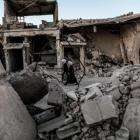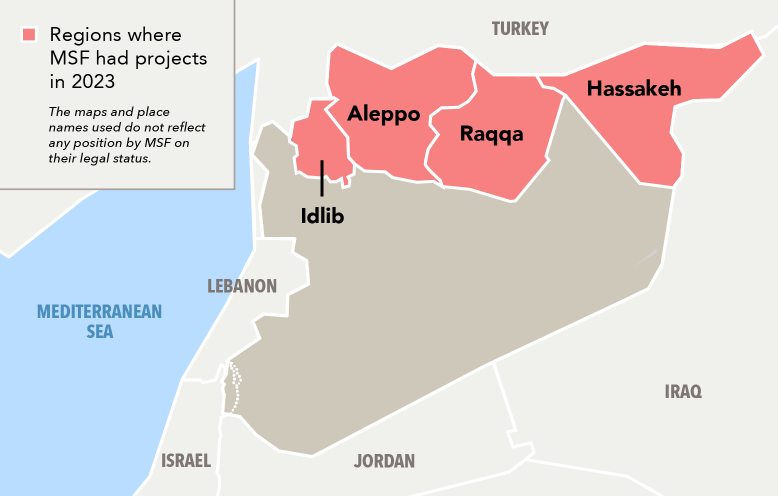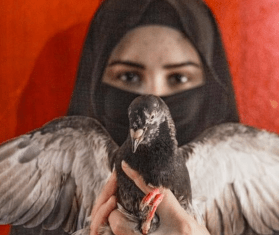MSF currently does not work in areas that were until recently controlled by the former Syrian government.
Northwest Syria
In Northwest Syria, we focus on delivering critical medical and humanitarian assistance to communities in Idlib and Aleppo governorates. Our teams have co-managed or supported six hospitals, offering a comprehensive range of specialist services, including maternal and pediatric care, vaccinations, surgery, mental health support, treatment for chronic diseases and skin conditions, and health promotion. In addition, we run a burns facility where our multidisciplinary approach comprises surgery, mental health services, physiotherapy, and palliative care.
MSF also runs or supports 12 general health care centers, with a particular emphasis on sexual and reproductive health and community health promotion, and deploys 11 mobile clinics across the region, delivering essential medical services to displaced people in remote and inaccessible areas.
Our other outreach activities include managing two clinics for non-communicable diseases, facilitating patient referrals through ambulances and delivering crucial water, sanitation, and hygiene services in more than 100 camps. Community-based health surveillance ensures a timely response to emerging health threats, while capacity-building initiatives empower local health care workers with essential skills and knowledge.
2023 EARTHQUAKE RESPONSE
Powerful earthquakes hit the south of Türkiye and northwest Syria in February 2023, resulting in over 59,000 deaths and many more injuries, as well as massive damage to infrastructure, including homes and medical facilities.
Following the disaster, our teams launched a swift emergency response, distributing trauma kits, rehabilitating health care facilities, and deploying mobile teams to affected areas. Mental health support was also a key component of our response. We set up a ‘safe spaces’ program in four locations in northern Aleppo and Idlib, in collaboration with partner organizations, to provide places where women and children could take a moment of respite from the harsh reality outside.
Our teams brought in over 40 trucks of medical and essential items for people in northwest Syria, including hygiene kits, shelters, and blankets, and made several donations of goods and equipment including two consignments of medical kits and other relief items to the Syrian Arab Red Crescent for distribution in areas where we do not have a presence. Our hospital in Atmeh, which usually specializes in caring for people with severe burns, made numerous donations of medical and non-medical equipment to 30 hospitals in the region. We also sent medical equipment to around 10 hospitals in Bab Al-Hawa, Darat Izza, Idlib, and Atarib, among other locations.
As the recovery process is still ongoing, we have integrated our emergency response into our regular activities. Throughout 2023, our teams remained ready to respond to other emergencies, such as mass casualty incidents and disease outbreaks, including a surge of cholera cases early in the year.
Northeast Syria
The health care system in northeast Syria is almost totally reliant on international support. Reductions in this support have resulted in decreased provision of medical and humanitarian assistance to people who are already living in extremely vulnerable circumstances.
MSF supports general health care clinics in the region, offering care for patients with non-communicable diseases as well as mental health and psychological support programs, inpatient and outpatient feeding units, and an emergency room.
In addition, our teams frequently respond to outbreaks of measles and cholera and maintain capacity to manage other emergencies.
We also run a reverse osmosis water purification plant to supply safe drinking water for people living in Al-Hol camp, which currently hosts over 40,000 people, more than 93 percent of whom are women and children. People continue to live in inhumane conditions, with little access to water, sanitation, or health care. Five years after its expansion, the camp remains an open air place of detention, an ambiguous legal space where people are arbitrarily and indefinitely deprived of their liberty. MSF continues to draw attention to the immense unmet needs and vulnerability of people in Al-Hol and urgently calls for increased international support and a long-term solution to the situation in the camp and others in the region.










